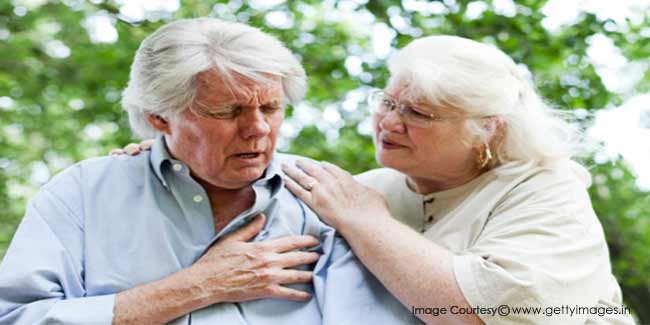
Ischemic heart disease is narrowing of coronary arteries, the vessels that supply blood to the heart muscle. It is also known as Coronary Artery Disease (CAD).
 It is generally caused due to the build-up of plaques in the arterial walls, a process known as atherosclerosis.
It is generally caused due to the build-up of plaques in the arterial walls, a process known as atherosclerosis.
Table of Content:-
Atherosclerosis thickens and narrows the arterial walls, interfering with the blood flow and starving the heart of oxygen and vital nutrients it needs. This condition is called ischemia.
As a result, blood clots are formed on arterial walls roughened by plaque deposits and may block one or more coronary arteries completely and cause a heart attack.
Causes of Ischemia heart disease
- Smoking- It advances the development of plaque in the arteries. The increase in the amount of carbon monoxide in the bloodstream decreases the amount of oxygen available to the heart. Smoking increases the chances of angina (chest pain).
- Diabetes- People with high glucose levels are at a higher risk of atherosclerosis.
- High blood cholesterol- Increased cholesterol levels lead to coronary artery diseases. Low Density Lipoprotein (LDL) gets chemically altered and its cholesterol can be incorporated into plaque after entering the arterial walls.
- Obesity
- High Blood Pressure
- Lack of Physical Activity
- Being Male
- Women over the age of 35 who take oral contraceptives
- Family history of heart attacks
Symptoms of Ischemic Heart Disease
The early stages of the disease might not show any symptoms. But the disease can be caused at a very young age, even in pre-teens. The fat builds up over time and injures the vessel walls where plaques will begin to collect.
Blood may form a clot around the plaque causing the artery to narrow, in an attempt to heal the troubled area. The process may lead to chest pain during physical activities or emotional stress due to the inhibited blood flow and oxygen.
A person should immediately seek medical help in case of:
- Chest Pain- mild pressure, tightness, squeezing, burning, aching or heaviness lasting over 30 minutes is a strong indicator of a heart problem. The discomfort is usually recorded in the centre of the chest. The pain exaggerates by exertion or stress and may stop with rest.
- Shortness of breath, dizziness accompanying chest pain
- Rapid or irregular heartbeats
- A sudden increase in chest pain immediately requires medical attention.
When you call the ambulance, you may be advised to chew an aspirin to break up a possible blood clot. But keep in mind you do not have a medical reason not to chew it.
Prevention from Ischemic Heart Disease
Now that you know the risk factors and symptoms of CADs, you must reduce your chances of getting it. One can opt for some lifestyle changes to prevent the condition:
- Quit smoking.
- Consume a diet that is low in saturated fats, cholesterol and salts.
- Be physically active for at least 30 minutes a day. People over the age of 50, who have led a non-active lifestyle, should check with doctor before taking up any physical activities.
- Lose weight if you are obese.
- Regularly check for blood pressure, blood sugar and cholesterol.
- Women at or approaching menopause should discuss possible cardio protective benefits of postmenopausal estrogen replacement therapy with their doctors.
Medical Assistance
- Chest pain with or without nausea, vomiting, profuse sweating, breathlessness and weakness should immediately be reported to medical practitioner.
- If chest pain from previously diagnosed angina does not subside after 10-15 minutes, one should seek medical help.
- First chest pain should not be ignored.
Read more articles on Heart Health.
How we keep this article up to date:
We work with experts and keep a close eye on the latest in health and wellness. Whenever there is a new research or helpful information, we update our articles with accurate and useful advice.
Current Version